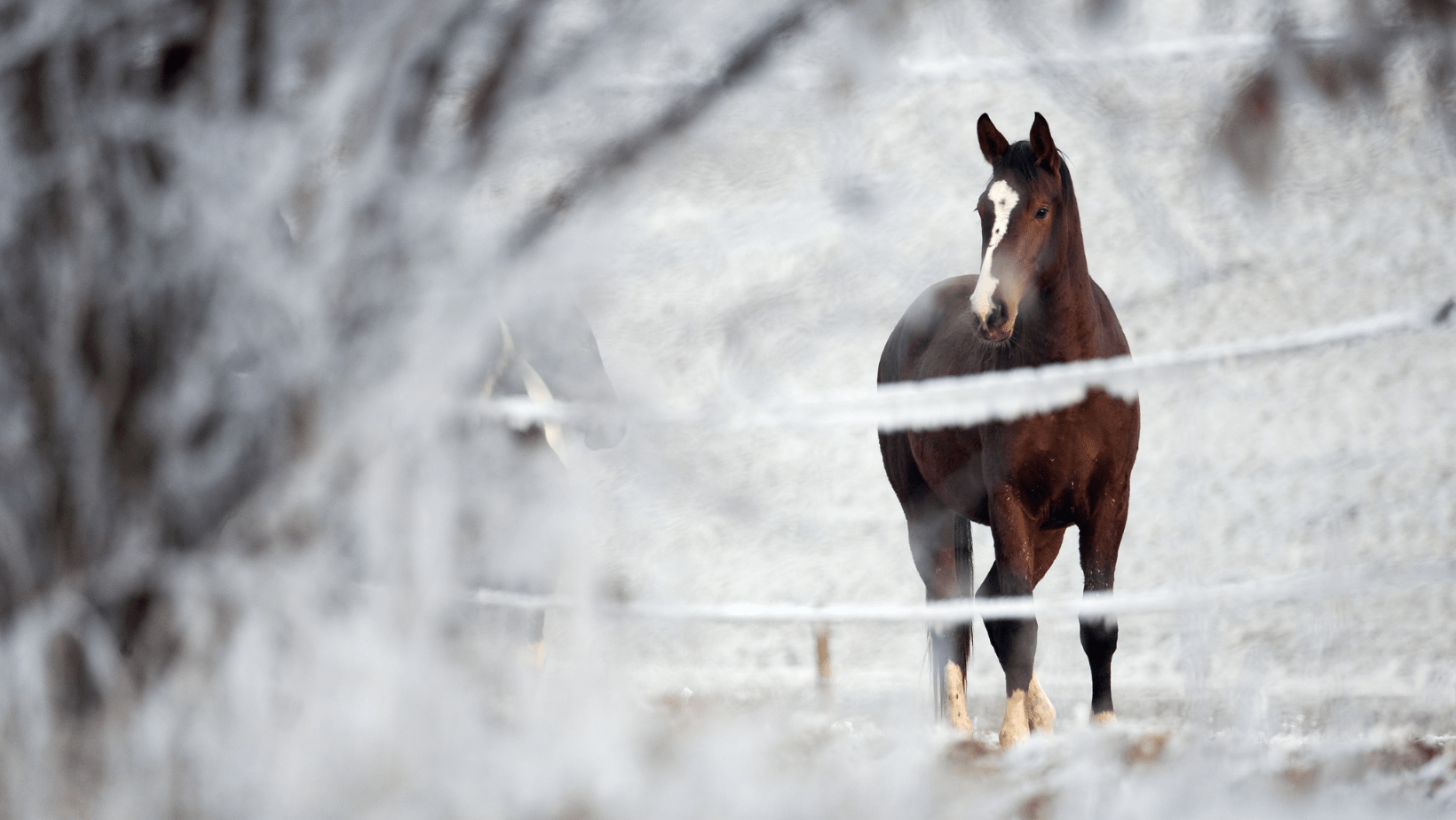Winter brings a chill in the air, and while you’re bundling up, don’t forget about your furry companions. Cold weather can pose serious threats to pets’ health, so let’s explore some tips on how to keep them warm, happy, and safe during these winter months.
Nourish Your Pet
Keep your pet at a healthy weight. Outdoor pets may need more calories to stay warm, so consult your vet about their nutritional needs. As it takes pets more energy to stay warm, you may need to feed them more in the colder months.
Winter Wellness Checkup
Just like us, pets may face health challenges in cold weather. Schedule a preventive care exam with your vet to ensure your furry friend is ready and healthy for the chilly season. Arthritis and other conditions can worsen in the cold, so a wellness check is a pawsitively good idea! Don’t have a vet? Schedule an appointment with us at the Dayton Humane Veterinary Hospital by calling (937) 965-4399.
Recognize Signs of Discomfort
Be aware of signs like whining, shivering, or weakness in your pet. These could be signs of hypothermia. Frostbite may not be immediately apparent, so consult your vet if you suspect any issues with your pet.
Fashionable Winter Wear
If your dog has a short coat, consider a fashionable sweater or coat. Booties can also protect their paws. Just make sure everything fits snugly, and you’ll have one dapper dog ready for winter strolls.
Check Paws Regularly
Frequent paw checks are essential. Cracked or bleeding paw pads can result from cold-weather injuries. Clip hair between the toes to reduce ice accumulation during walks. Make sure to also wipe their paws clean with a warm, wet towel after walks to remove any salt or residue they may have picked up.
Indoor Comfort Matters
Contrary to common belief, cats and dogs aren’t automatically resistant to cold weather due to fur. If at all possible, keep them indoors during chilly weather to prevent frostbite and hypothermia. Even cold-tolerant breeds should be kept inside in freezing temperatures. If you cannot keep your pet inside, make sure they have easy access to shelter that protects them from the harsh weather. Line the shelter with straw as insulation. Do not use towels as they become wet and freeze, causing more harm to your pet than good. Along with their shelter, make sure they also have access to fresh (not frozen) water and plenty of food.
Poison Prevention
There are many things used by humans this time of year that can be toxic to your pets. Antifreeze can smell sweet and appealing to your pets so if you spill any, clean it up quickly to keep your pets safe. De-icers can also be toxic if swallowed. Protect your pet by avoiding these hazards. If you pet does ingest these items, contact your veterinarian immediately.
Post-Walk Cleanup
After walks, wipe your pet’s feet, legs, and belly to remove de-icing products, salt or other chemicals. Choose pet-safe de-icers to protect your furry friend and others in the neighborhood.
Understand Your Pet’s Tolerance
Pets, like people, have varying tolerance to cold based on factors like coat thickness and health. Adjust outdoor activities according to your pet’s tolerance. Remember, arthritic and elderly pets may need extra care, while long-haired breeds still need protection.
Be Prepared for Emergencies
Prepare for severe weather with a disaster kit, including enough food, water, and medicine for your pet for at least 5 days. Not sure what should be included in your disaster preparedness kit? The Humane Society of Greater Dayton has a checklist for dogs, cats and rabbits on our website. Check it out here.
Avoid Leaving Pets in Cold Cars
Just like we warn about keeping pets in cars in the summer time due to heat concerns, the same goes for winter months, but instead it is for cold concerns. Pets can chill rapidly, especially the young, old, ill, or thin. Limit car travel to essentials and never leave your pet unattended.
Identification and Safety Measures
Ensure your pet has a well-fitting collar with updated identification. A microchip provides permanent identification. Keep your contact information current in the microchip registry. Do you need to microchip your pet? The Humane Society of Greater Dayton offers microchips for just $20 per pet. Simply stop in with your pet during or normal business hours and our team will take care of you. No appointments are needed and the whole process usually takes between 10 and 20 minutes.

Winter Safety for Livestock
Pets aren’t the only ones needing protection. Livestock, like horses, have unique considerations during winter. Here are a few things to think about when it comes to cold weather and your livestock.
Early Veterinary Care
Schedule a veterinary exam early in the season to address any concerns before the harshest conditions arrive. This is a good time to discuss vaccinations, nutritional supplementation, deworming, and other parasite treatment needs. Veterinary attention is especially important for animals that are pregnant, and very young or very old animals may require special attention. If you are in need of a veterinary, contact our Dayton Humane Veterinary Hospital at (937) 965-4399. Our services may be low-cost but the quality of care you receive is top-notch.
Shelter from Harsh Elements
Livestock can generally tolerate cold temperatures, but wind, rain, or snow will require a greater expenditure of calories. Be sure they have a way to get out of the elements, especially the wind. Blankets can help protect horses, but a structural shelter with proper ventilation and dry bedding is the best method of protection. If you do blanket your horses, be sure to check underneath often for signs of injury, infection, or malnutrition.
Manage and Clear Driveways
Prevent injuries for both you and your pet by keeping ice to a minimum. Ensure driveways are clear for easy access by veterinarians and farriers.
Consider the Feed
Besides taking shelter, livestock keep warm by using up more energy, which means they need to consume enough calories to heat themselves. Consider talking with your veterinarian to develop a feed plan that meets your animals’ nutritional needs. This may mean increasing the amount of feed available to your animals, and/or increasing the quality of feed. Very young, very old, or sick animals will typically have additional nutritional needs during the winter compared to healthy, middle-aged animals.
Ensure Access to Water
It is crucial that your herd has access to fresh and unfrozen water. Tank heaters or heated buckets can help keep water at a temperature your animals are more comfortable drinking. Livestock will not consume adequate amounts of water if it is near freezing, and consuming enough water is important to your animals’ health and well-being in winter months.




